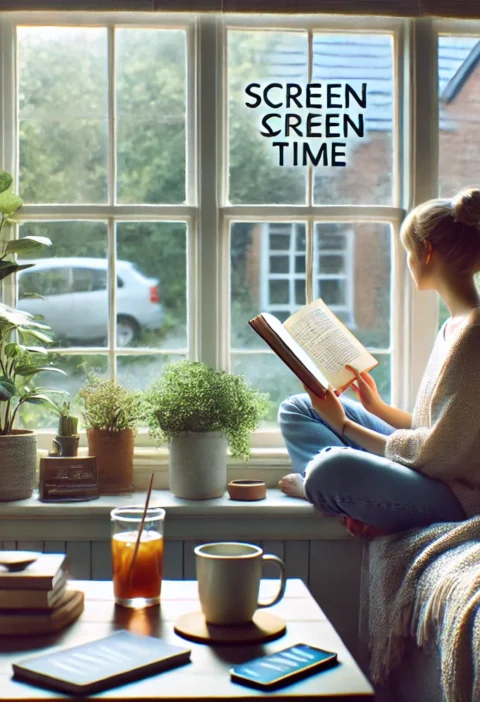Gratitude might seem like a simple “feel-good” habit, but it’s actually a powerful mental health tool—backed by science. Practicing gratitude regularly can rewire your brain, reduce stress, boost happiness, and help you feel more grounded in daily life.
And the best part? It doesn’t require money, equipment, or a lot of time.
Let’s explore how gratitude works, why it matters, and how to start incorporating it into your everyday routine—authentically and effortlessly.
What Is Gratitude, Really?
Gratitude is more than just saying “thank you.” It’s a mindset and emotional practice where you notice and appreciate the good in your life—big or small.
Gratitude is:
- Recognizing what you already have
- Acknowledging positive moments (even brief ones)
- Shifting focus from lack to abundance
- Being present with what’s working instead of what’s missing
It’s not about ignoring pain—it’s about seeing beauty alongside it.
The Science of Gratitude
Studies have shown that gratitude:
- Increases dopamine and serotonin (feel-good brain chemicals)
- Lowers cortisol (stress hormone)
- Improves sleep and reduces insomnia
- Boosts resilience during difficult times
- Increases optimism and life satisfaction
- Strengthens relationships and emotional intelligence
It’s like exercise—but for your brain and heart.
1. Start a Gratitude Journal
This is one of the simplest and most effective ways to practice daily gratitude.
Try this:
- Each morning or night, write down 3 things you’re grateful for
- Keep it simple (e.g., “sunlight through the window,” “a warm meal,” “a kind text”)
- Be specific when possible (“my coworker brought me coffee today”)
This daily reflection shifts your mindset over time.
2. Use “Micro-Moments” of Gratitude
Gratitude doesn’t have to be a long practice. Look for brief moments throughout your day.
Try:
- Saying “thank you” silently when something good happens
- Taking a deep breath and smiling at a peaceful moment
- Pausing to enjoy your food, music, or surroundings
Tiny gratitude moments = powerful mindset shifts.
3. Reframe Challenges with Gratitude
Gratitude isn’t about pretending everything’s great—it’s about finding meaning in the messy.
Ask:
- What did I learn from this?
- Who supported me during that challenge?
- How did this experience help me grow?
- What strength did I discover in myself?
This helps you find value in both the highs and lows.
4. Express Gratitude to Others
Sharing your appreciation strengthens bonds and spreads positivity.
Try:
- Writing a thank-you note (or text)
- Telling a friend how much they mean to you
- Complimenting someone genuinely
- Thanking someone for their presence—not just their help
When you express gratitude, you both feel the benefit.
5. Create a Gratitude Jar
Here’s a fun and visual way to stay connected to gratitude:
- Keep a jar, slips of paper, and a pen somewhere visible
- Each day or week, write something you’re grateful for and drop it in
- Revisit the jar when you’re feeling low or stuck
It becomes a physical reminder of all the good in your life.
6. Practice Gratitude During Tough Times
It might feel harder—but that’s when it matters most.
Even on difficult days, ask:
- What small comfort can I appreciate today?
- Who helped me today, even in a small way?
- What did my body or mind get me through?
- Is there a peaceful moment I can return to?
Gratitude doesn’t erase pain—it helps you hold it with more grace.
7. Start and End the Day with Gratitude
Bookending your day with gratitude helps you:
- Start with presence and intention
- End with peace and appreciation
- Sleep better
- Stay connected to what really matters
Try saying or writing one thing you’re grateful for right after waking up and before bed.
8. Be Grateful for Yourself, Too
Don’t forget to include you in your gratitude practice.
Appreciate:
- Your progress
- The effort you’re making
- The kindness you give
- The strength you’ve shown
- Your ability to keep going, even when it’s hard
You deserve your own thanks.
9. Let Gratitude Be a Way of Living
Gratitude is not just a practice—it’s a lens.
It shifts how you:
- React to problems
- Connect with others
- View your life story
- Approach each moment
The more you practice it, the more natural it becomes.
Gratitude Changes Everything
When you focus on what’s going right—even in the smallest ways—you create space for joy, peace, and perspective.
So today, take a breath. Look around. And ask:
“What is one thing I can be grateful for right now?”
The answer is always there. 🌿💛




